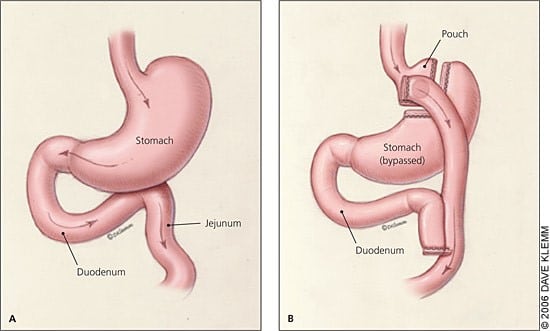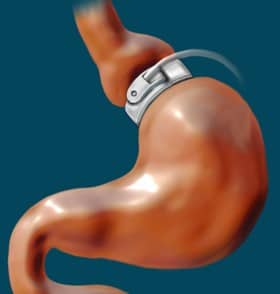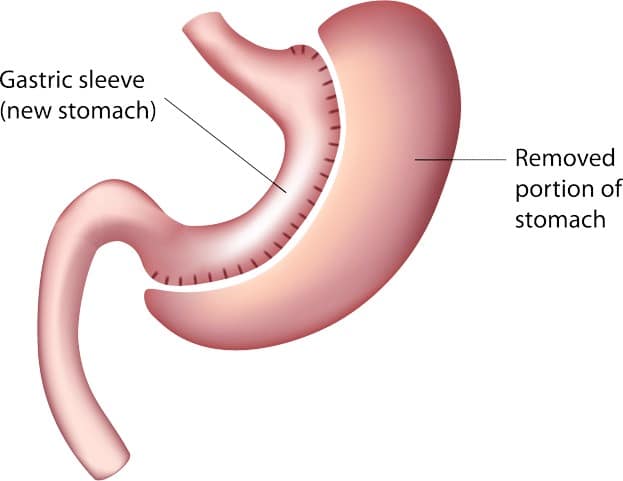Bariatric Surgery Cost And Types – Overview

Bariatric Surgery Cost And Types
Several people are seeking out effective ways for weight loss and get no results. In February 2021, millennials in the USA reported having gained approximately 41 pounds since the beginning of the covid-10 pandemic. A healthy lifestyle along with exercise to some extent can show good results. However, if people want effective results, they would go for bariatric surgery, which helps attain long-term weight loss.
When it comes to weight loss surgery, the main thing that people want to know about is the bariatric surgery costs and their types. It helps them to decide on what kind of surgery to get and set a budget for it.
Bariatric surgery is essential for individuals because excess weight gain can lead to several illnesses, which can only be lessened if they lose weight. Also, patients need to be both physically and physiologically prepared for the bariatric procedure. Let’s get into bariatric surgery, its types and costs, and who should go for it.
What is Bariatric Surgery?
Bariatric surgery is a surgery performed for weight loss, and that’s why one can also call it a weight loss surgery. Generally, it’s performed on obese people to lose weight effectively for a long time.
When patients cannot lose weight even after trying their all, they can go for weight loss surgery. Through this, you can improve or even solve health issues like hypertension, type 2 diabetes, urinary incontinence, sleep apnea, and body aches and pain.
As beneficial as it is, bariatric surgery is expensive and may cost around $20,000 to $25,000, as per the National Institute of Diabetes and Digestive and Kidney Diseases. However, it’s just an average rate. It may vary with several factors like the type of the surgery, the procedure, surgeon’s fee, and hospital.
Bariatric Surgery Cost by Surgery Type
Bariatric surgery aims to decrease the weight of obese people and even helps in reducing food intake and increasing satiety. Such surgery comes with several types; however, the main emphasis is put on the following types:
- Gastric bypass surgery
- Gastric banding surgery
- Gastric sleeve
- Duodenal switch
1. Gastric Bypass Surgery

Bariatric Surgery Cost – Gastric Bypass Surgery
Gastric Bypass Surgery is a type of surgical procedure where the stomach is divided into a larger lower “remnant” pouch and a small upper pouch. Then both get connected by rearranging the small intestines. Surgeons have developed several methods for reconnecting the small intestine and the stomach. Thus, even gastric bypass surgery consists of different parts. Of the parts, the popular one is Roux-en-Y gastric bypass.
The average cost of Roux-en-Y gastric bypass surgery is about $23,000 in the United States. However, on a state-specific level, it ranges from an average of $15,000 (Arkansas) to an average of $57,000 (Alaska).
In Germany, if not covered by health insurance and therefore paid privately, a gastric bypass operation costs around €15,000; in Switzerland, CHF 20,000-25,000.
2. Gastric Banding Surgery

Bariatric Surgery Cost – Gastric Banding Surgery
It’s a type of weight loss surgery that involves placing a laparoscopic adjustable gastric band (also called lap-band) that’s an inflatable silicone device around the top portion of the stomach, creating a smaller stomach pouch. It limits the amount of food consumption, resulting in the patient feeling full with less consumption.
The cost of gastric banding surgery comes around $8,700-29,000 USD across the country. The average cost of gastric banding surgery is approximately $14,532 in the United States. However, cash prices tend to be lower compared to the insurance pays.
3. Gastric sleeve

Bariatric Surgery Cost – Gastric Sleeve Surgery
It’s a weight loss surgery that shrinks the size of the stomach, making people feel full when they eat less. In a Gastric sleeve, the stomach is reduced by about 85% along the greater curvature of the stomach. It results in a stomach that’s like a tube or sleeve.
There are three primary bariatric surgery costs’ categories for gastric sleeve surgery that include:
- Pre-operation costs – Such costs include the fees you incur before the operation begins. It includes consultation fees, professional fees, lab work, and testing.
- Operation costs – Such costs include the fees for performing the surgery. The operation fees include surgical assistant, surgeon, hospital, and anesthesia fees.
- Post-operational costs – Such costs include vitamins, follow-up physician office visits, and supplements.
Regular costs for sleeve gastrectomy surgery are about $19,000 in the United States. It varies widely according to the states; Texas and South Dakota offer the lowest average cost of approximately $12,000, while the most expensive surgeries are performed in Alaska (average about $58,000).
In Turkey, this operation costs $6,000. In Jordan, the total cost is approximately $4,000, including all pre-surgery tests, x-ray, and hospital fees. Meanwhile, in New Zealand, the cost is approximately $20,000. Patients may access superannuation in Australia to get funds for the surgery cost. In Denmark, the typical price was $9600 as of Feb 2018 at a private hospital.
4. Duodenal switch
This procedure is one of the established types of weight loss surgery. It restricts the diet as about 70% of the stomach, and most of the duodenum is removed. It also has a malabsorptive aspect.
Compared with the procedures mentioned above, duodenal switch surgery is one of the most expensive procedures since its a more complicated nature and has long operating times. Due to its complexity and less demand than other such procedures, it’s performed by a relatively small percentage of surgeons, further increasing the rates since there is a lack of competition.
Patients who don’t have insurance (also called “self-pay” patients by most bariatric practices) would have to pay an average of approximately $27,000 in the United States. However, this varies widely according to clinics and states. For example, surgeries in the least expensive state, New Jersey, have an average rate of about $24,000 for this type of bariatric surgery costs while practices in the most expensive state, Nebraska, charge around $32,500. This surgery is performed by some surgeons in Mexico at a much lower cost than in the United States.
Who Should Go For a Bariatric Surgery?
There are specific points when the regular healthy routines and exercises don’t help you lose weight and its related illnesses. You should go for bariatric surgery if and when:
- Your Body Mass Index is around 40 or above (extreme obesity).
- You have a BMI of 35-39.9 (obesity) and health-related severe issues such as severe sleep apnea, type 2 diabetes, or high blood pressure.
- In some cases, your BMI is 30-34, along with some serious health-related problems.
Final Thoughts:
Hence, we can say that bariatric surgery is very effective and efficient for losing weight. Through such a surgery, people can get long-term weight loss and even improve health issues related to being overweight.
Bariatric surgery costs can be expensive. However, sometimes you have to bear with it to get fruitful results. It’s a tough decision and even requires a commitment to a new and changed lifestyle. But, all of it results in improved health too. According to a study, gastric bypass surgery is by far the most effective when it comes to weight loss. It results in an average of 31 % body weight loss in the coming first year and 25% in the coming five years after that.